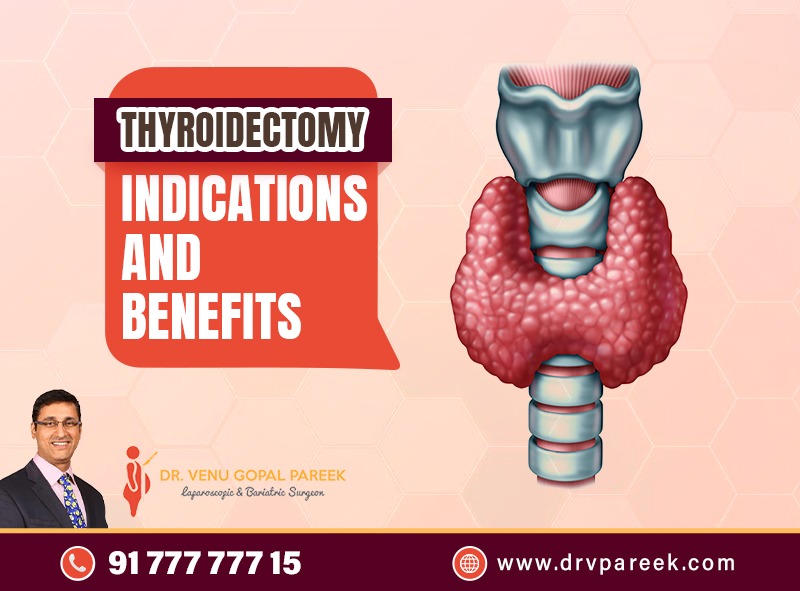
The thyroid gland is a small, butterfly-shaped organ located in the middle of the lower neck, just below Adam’s apple. The thyroid gland produces hormones that aid in regulating many bodily processes, such as metabolism, growth, and development.
Thyroid problems involve any disorder that damages the thyroid gland.
The main thyroid problems that include:
Hypothyroidism: It is a condition characterized by an underproduction of thyroid hormones by the thyroid gland. The signs of this condition include fatigue, weight gain, cold intolerance, constipation, dry skin, and depression.
Hyperthyroidism: It is a condition characterized by an overproduction of thyroid hormone by the thyroid gland. The signs of this condition include weight loss, nervousness, rapid heartbeat, sweating, and increased bowel movements.
Thyroid nodules: Thyroid nodules are characterized abnormal growths or fluid-filled lumps developed in the thyroid gland that can be either benign or cancerous.
Thyroiditis: This is an inflammatory condition of the thyroid gland that can be caused by infection, autoimmune disease, or other factors.
Goitre: It is a condition where the thyroid gland enlarges abnormally. Swelling at the base of the neck could be a symptom and it may be caused due to iodine deficiency, autoimmune diseases, or other thyroid disorders.
Thyroid cancer: A type of cancer that damages the a and develops within the thyroid gland.
Treatment for thyroid problems depends on the specific condition and may involve medication, surgery(thyroidectomy), or radiation therapy.
Thyroidectomy procedure
Thyroidectomy is a surgical procedure where the full thyroid gland or a part of it is removed. This procedure is commonly performed to treat thyroid cancer, goiter, hyperthyroidism, and other thyroid-related conditions. Here are the general steps involved to remove the gland surgically. The procedure is typically performed under general anesthesia and may take several hours depending on the extent of the surgery.
- In order to keep the patient unconscious and pain-free throughout the surgery, general anaesthesia is administered to them prior to the procedure.
- Above the thyroid gland, the surgeon makes a cut in the neck. Depending on the scope of the procedure and the anatomical makeup of the patient, the incision’s size and position may change.
- The thyroid gland is then exposed by the surgeon by separating the neck’s muscles and tissues carefully.
- The parathyroid glands, which govern calcium levels in the body, as well as the nerves that control the voice box, are carefully identified and preserved by the surgeon.
- The surgeon will remove all of it or a portion of the thyroid gland depending on the surgical goal. To keep the thyroid functioning, a part of the gland may occasionally be preserved.
- Following the removal of the gland, the incision is closed with stitches or staples by the surgeon.
- The patient is then brought to the recovery area, where the complications are closely monitored. Many patients are able to leave the hospital either on the same day or the day after their surgery is completed, though some may needs to remain in the hospital for a longer time.
After the surgery, the patient will have to take medication to replace the function of the thyroid gland that was previously performed by the thyroid gland. The amount of time needed for recovery and potential risks will be contingent upon the size of the procedure and the patient’s overall health.
Thyroidectomy indications
Thyroidectomy may be performed in the following situations when other treatments don’t work.
Thyroid cancer: If a patient has thyroid cancer, thyroidectomy may be recommended to remove the cancerous tissue.
Benign thyroid nodules: If a patient has a large or symptomatic benign thyroid nodule, thyroidectomy may be recommended to remove the nodule.
Hyperthyroidism: If a patient has an overactive thyroid gland that cannot be controlled with medication or other treatments, thyroidectomy may be recommended to remove part or all of the thyroid gland.
Enlarged thyroid gland: If a patient has an enlarged thyroid gland (goiter) that is causing breathing or swallowing problems or is cosmetically unacceptable, thyroidectomy may be recommended.
Recurrent thyroiditis: If a patient has recurrent episodes of thyroiditis, thyroidectomy may be recommended to prevent further episodes.
Graves’ disease: In some cases, thyroidectomy may be recommended for people with Graves’ disease, an autoimmune disorder that causes hyperthyroidism, when other treatments are not effective or are not well-tolerated.
Thyroidectomy is generally a safe and effective procedure, but it is important to discuss the potential risks and benefits with a qualified healthcare provider.
Benefits of thyroidectomy
The advantages of thyroidectomy vary depending on the particular medical issue being addressed. Generally, thyroidectomy can offer numerous advantages:
If thyroidectomy is performed to remove thyroid cancer or suspicious tissue, it can help to stop cancer from spreading to other areas of the body.
Symptoms like swallowing, breathing or speaking caused due to enlarged thyroid gland can be relieved.
If the thyroid gland is producing too much hormone, leading to hyperthyroidism, a thyroidectomy can help to bring the thyroid’s activity back to a regular level and reduce symptoms like rapid heartbeat, tremors, and weight loss.
People suffering with thyroid conditions that cause significant symptoms or hinder daily life may benefit from a thyroidectomy, which can help improve their quality of life.
It is important to note that thyroidectomy, like any surgical procedure, also carries risks and potential complications, and these should be discussed with your doctor before making a decision to undergo the surgery.
For more detailed information or looking for doctor who can treat thyroid problems effectively, consult Dr. V Pareek @+91 91-777-77715 or visit Appointment Booking.







